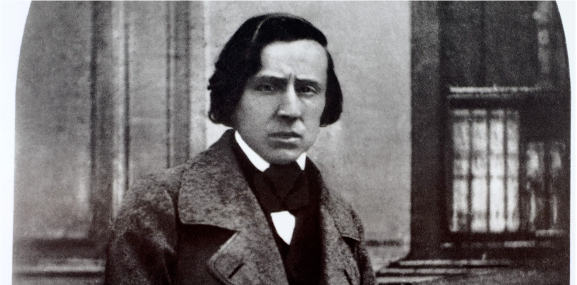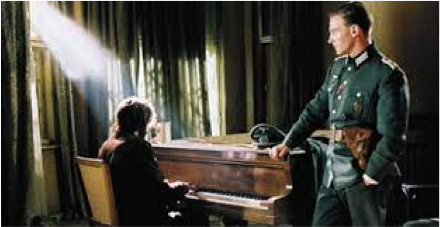

Filters

Polish and French composer and matchless genius, renowned mainly for his piano works which set a new standard through their expressiveness, imaginative character and craftsmanship. His compositions being very significant in number and quality, Chopin had a tremendous impact on other composers, despite the fact that he only gave 30 public concerts during 30 years.
Chopin was born to a caring family that financially supported him to pursue his goals despite its financially poor status. He was the typical case of a prodigy child, playing piano and composing tunes by the age of 6. He was also lucky to have an exceptional teacher who helped the boy develop his talents. At the age of 19 , when he completed his musical education, his parents sent him to Vienna, the musical centre of Europe then, and after a few months he moved to Paris where he earned his living by giving concerts and working as a piano teacher.
His music was very expressive and emotional and could not be imagined to be played by another instrument than the one it was conceived for, which was generally the piano. He virtually ignored orchestras and all other instruments and concentrated on the piano. In addition, his compositions were very innovative in the realm of piano music. His inventive techniques, including the extensive use of pedals, complex division of beats, range of colour shadings and use of "rubato" and ornamentation, set an unsurpassable standard for piano, although he did not produce any large-scale orchestral compositions. He has thus influenced all piano work written since his time.
Chopin was in poor health throughout his life, suffering from chronic tuberculosis which was causing him recurring illnesses. Partly because of this condition, Chopin was the typical case of the suffering romantic and this is reflected in his works. He was also introverted, extremely sensitive, and had a tendency towards melancholy.
In his personal life, he had a troubled relationship with the renowned French writer George Sand. Some of his greatest works emerged as a result of his joyfulness in the early days of his nine-year relationship with George Sand. After the end of their relationship, Chopin fell seriously ill, and left Paris for an extended stay in England and Scotland, from which he returned exhausted.
He died at the age of 39 due to complications of his long-term illness. Before he died, he had asked his sister that his heart be taken back to Warsaw. His heart is now located at Holy Cross Church in a pillar inscribed with the following quote: "For where your treasure is, there your heart will be also".
His music has remained in history for its expressiveness, emotion, lyricism, and innovative techniques. As Debussy himself observed, “By the very nature of his genius, the music of Chopin escapes any classification.”
"Reflections of light"
(Nocturne in E Flat major Op. 9)

"Sounds of hope"
(Nocturne in C Sharp Minor)

"Life colours"
(Ballade no 4 in F Minor)

"Heroic polonaise"
(Polonaise in A Flat Major Op. 53)

"Love is a roller coaster"
(Ballade No 1 in G Minor)

"Raindrops"
(Prelude in D Flat Major)

"Gateway to another dimension"
(Fantaisie Impromptu in C Sharp Minor Op. 3 No 2)

"Tumultuous love"
(Scherzo No 2)

"The longing waltz"
(Waltz No 7)

"Reverie in the moonlight"
(Piano Concerto No 1 Romance / Movements 1 & 2)

"The grande polonaise brilliante"
(Andante Spianato and Polonaise in E Flat Major)
